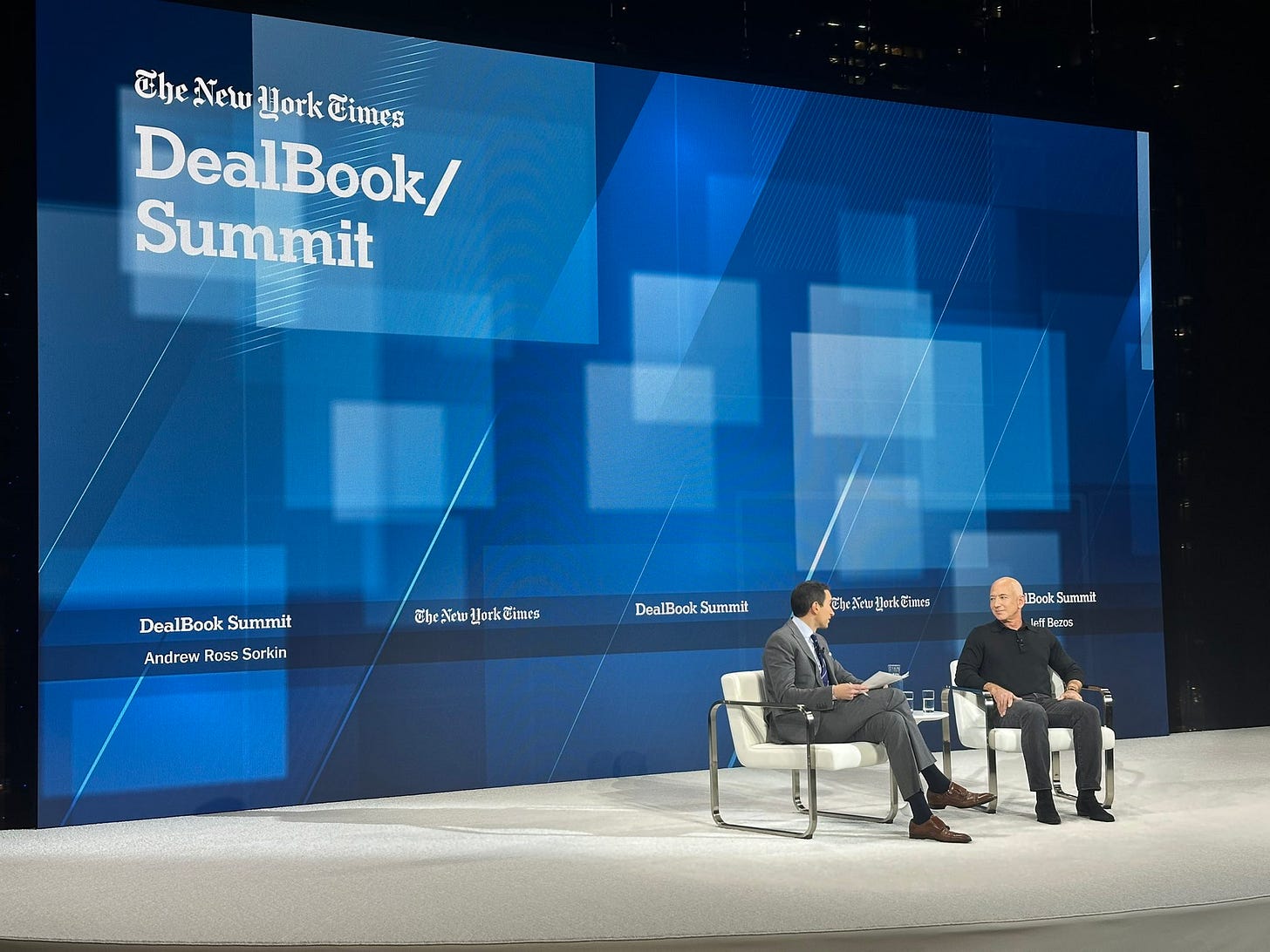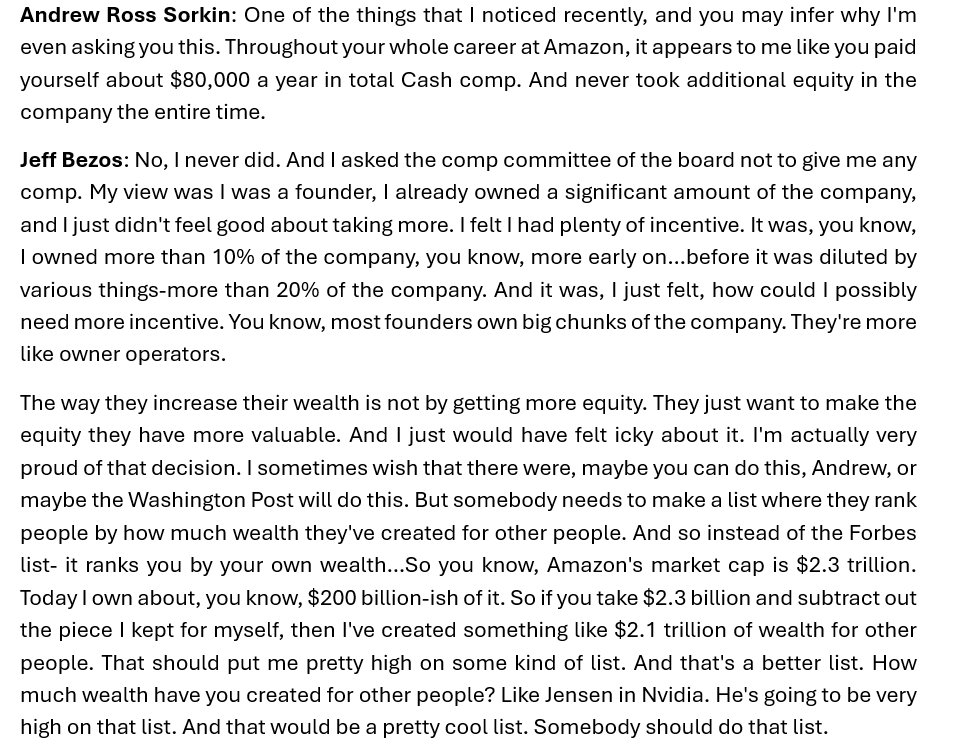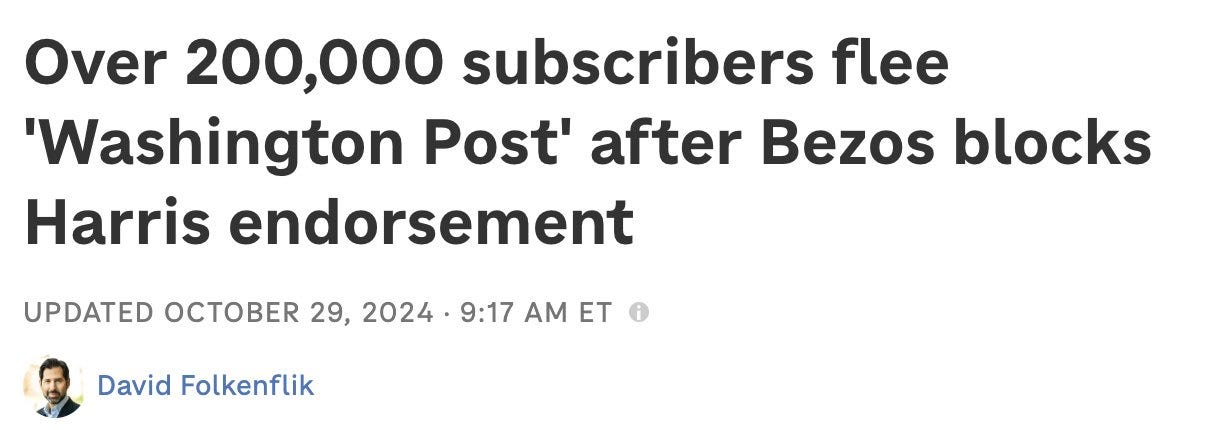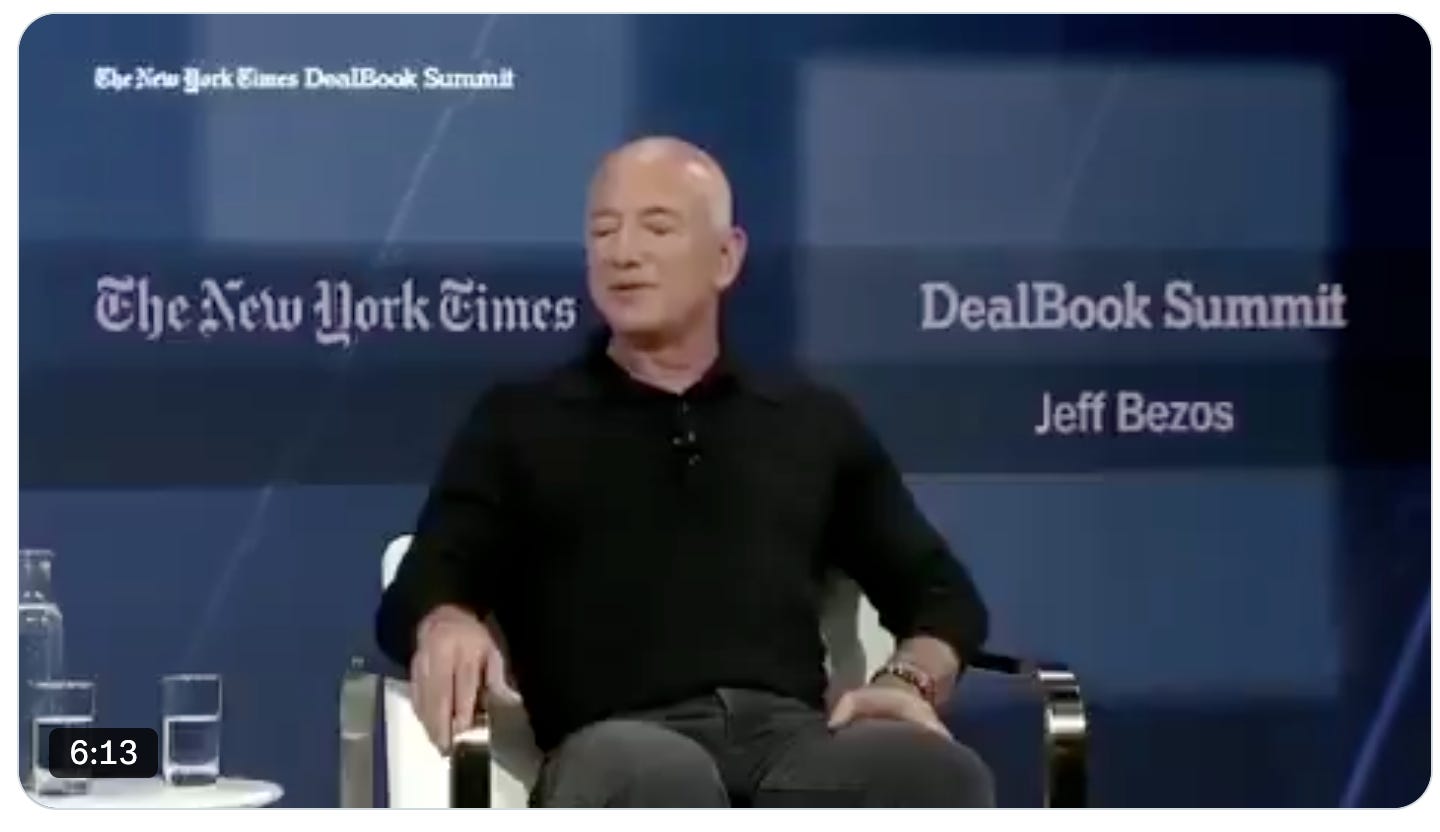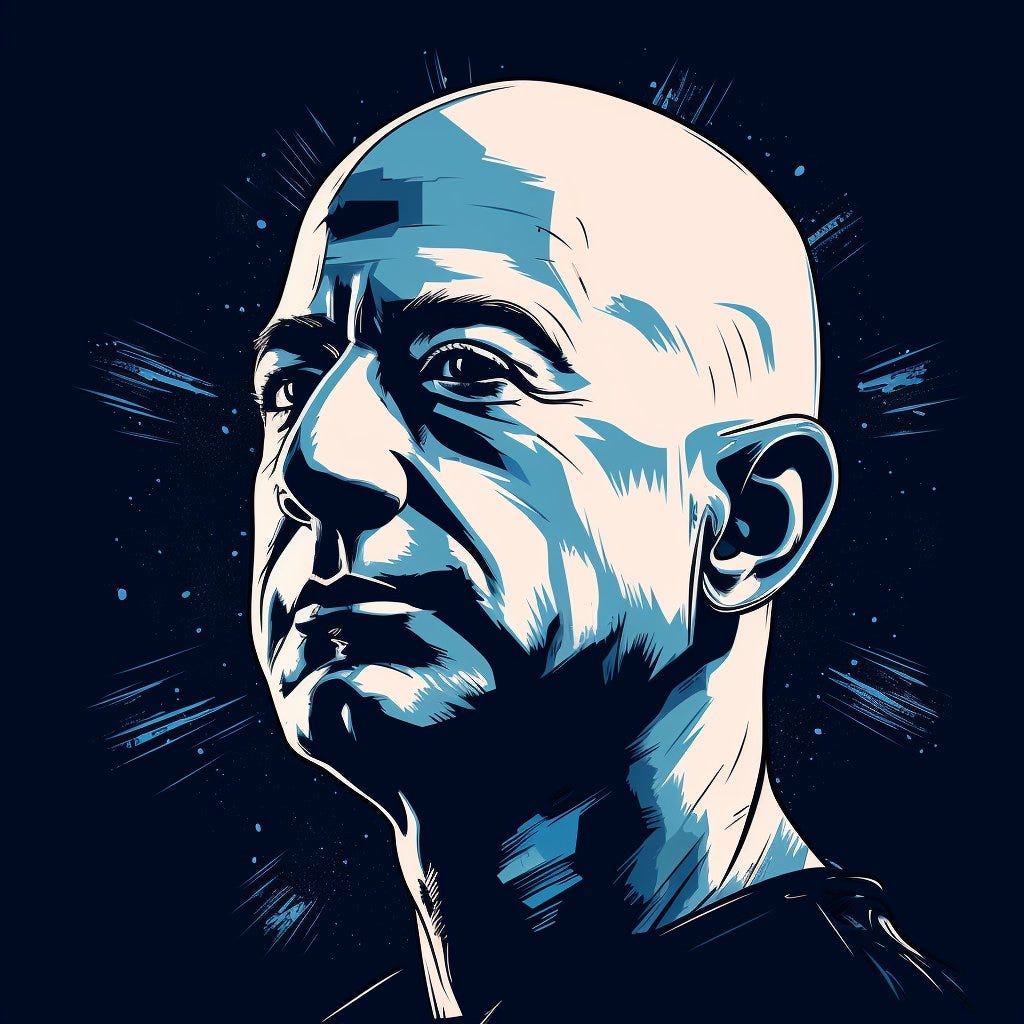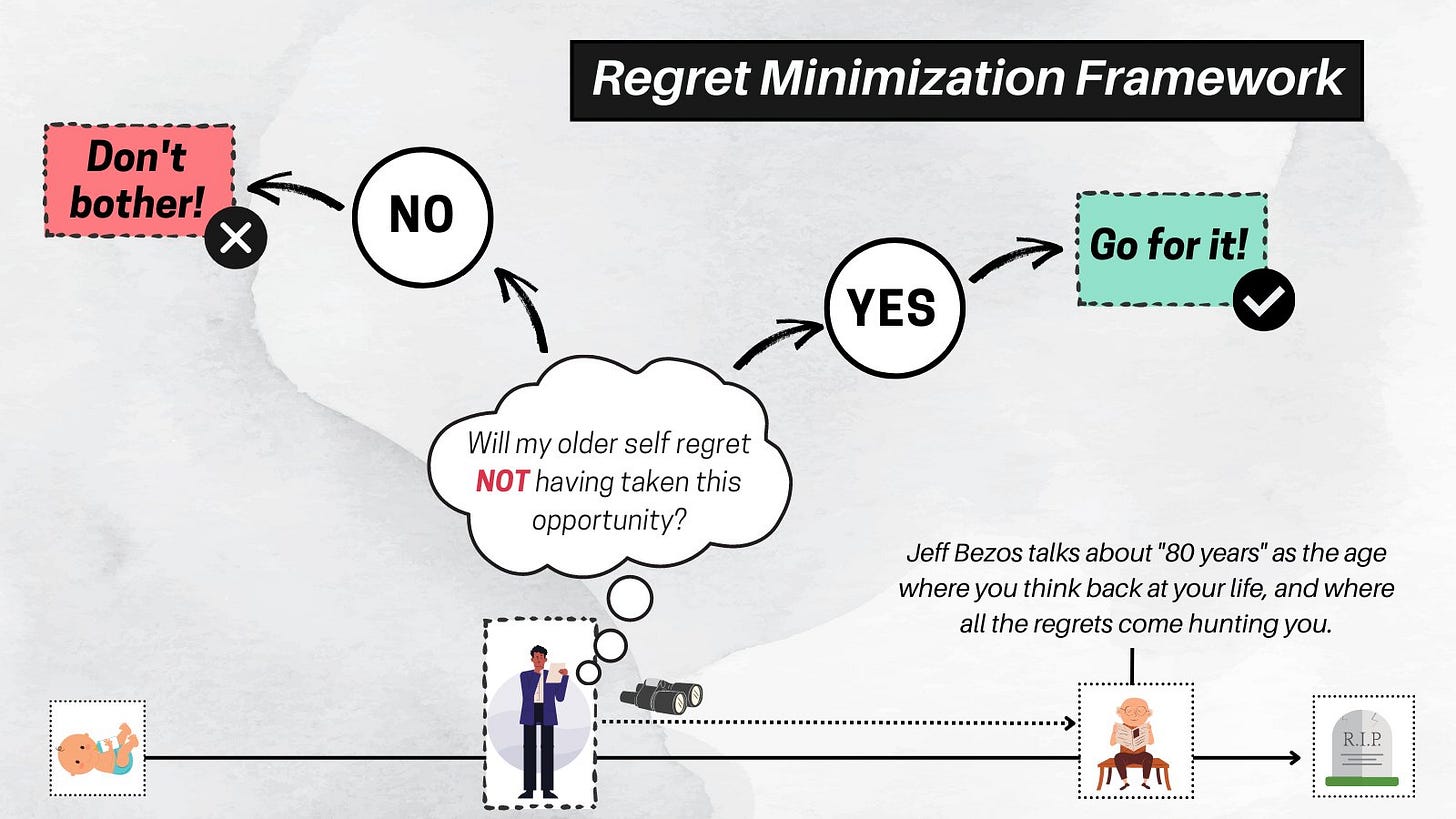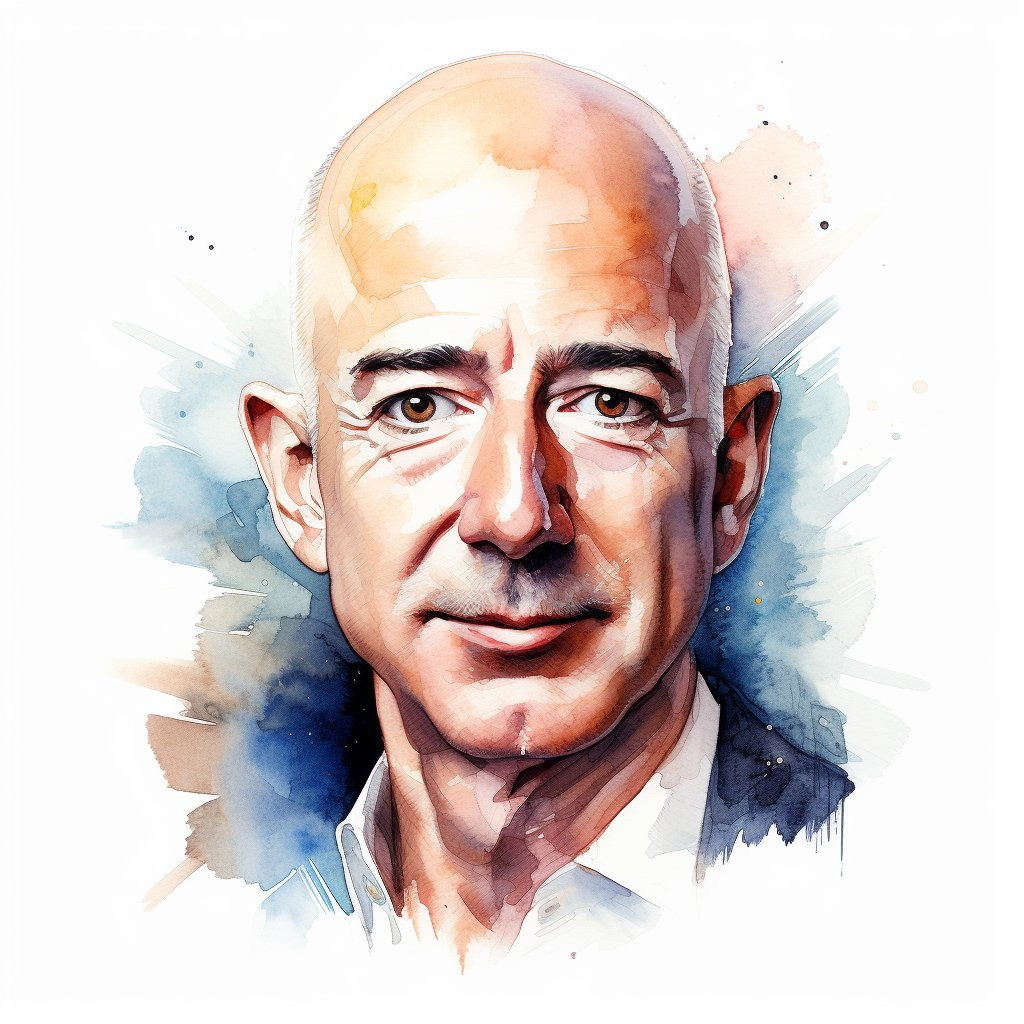Inside Jeff Bezos’ Mind: Lessons on Growth, Leadership, and the Future of Humanity
When Jeff Bezos steps into the spotlight, it’s rarely about looking back—it’s about the road ahead!
At the 2024 New York Times DealBook Summit, Bezos gave a rare, wide-ranging interview with Andrew Ross Sorkin.
Abdullah Al-Rezwan, better known under is X pseudonym @borrowed_ideas, referred to it as “perhaps the best @JeffBezos interview I have ever listened to.“
Here are 7 must-know takeaways from the conversation:
1. Wealth, Ownership, and Building for Others
Bezos described his approach to wealth and stock ownership, revealing that he asked Amazon’s board to never increase his equity stake or cash compensation.
"I already had enough skin in the game. I didn’t feel right taking more."
Bezos’ view is that founders’ wealth should grow as a byproduct of increasing the value of their company for others.
He highlighted Amazon’s $2.3 trillion market cap, of which only $200 billion represents his stake.
“If you subtract my share, that’s $2.1 trillion in wealth created for others. That’s the number I’m most proud of."
This mindset underscores Bezos’ belief in creating systems of shared prosperity. For him, wealth is not about accumulation but about the scale of impact—and creating value that benefits employees, investors, and society.
Watch a clip of that part of the conversation here or read the transcript below:
2. Rebuilding Trust in Media
Bezos defended the Washington Post’s controversial decision to stop endorsing presidential candidates, framing it as a necessary move to rebuild credibility in an era of declining trust in institutions.
"Media must meet the same standard as a voting machine—both accurate and perceived as unbiased."
Bezos explained that trust in media has been declining for decades.
While endorsements may not influence elections, they contribute to a perception of bias that erodes the very credibility that media needs to operate effectively.
He acknowledged the backlash he received for blocking an endorsement of Harris, including 250,000 canceled subscriptions, but stood by the decision, emphasizing the importance of long-term trust over short-term popularity.
3. Economic Growth as a Path to Solving Debt
According to arguably the greatest CEO of all time, tackling the U.S. national debt isn’t about cutting spending but growing the economy.
"You solve the debt problem by making it a smaller percentage of GDP—not by shrinking it, but by growing the denominator."
Bezos championed policies that encourage growth, such as reducing regulatory hurdles that stifle innovation.
He credited America’s unique advantages—its venture capital ecosystem, entrepreneurial culture, and energy independence—as keys to sustaining growth. However, he warned that excessive bureaucracy threatens this potential.
Watch the entire discussion around the US debt problem here.
Why This Take Matters:
Bezos’ argument challenges the focus on austerity as a solution to economic woes, advocating instead for fostering innovation and growth to address systemic challenges like debt.
4. Space is Humanity’s Plan A
For Bezos, space isn’t an escape plan—it’s an opportunity to preserve Earth.
He envisions a future where energy-intensive industries are relocated to space, leaving Earth as a pristine, “zoned residential” planet.
"There’s no Plan B. Earth is unique, and it must be preserved. The heavy lifting? That happens off-world."
He outlined how advances like Blue Origin’s heavy-lift rockets aim to reduce the cost of access to space, setting the stage for future generations to move polluting industries off Earth.
With space offering nearly infinite energy and resources, Bezos argued this is humanity’s best chance to decouple growth from environmental harm.
5. AI as the Next Foundational Technology
According to Bezos, modern AI is a horizontal enabler, like electricity, that will impact EVERY industry.
"AI is everywhere—it’s a horizontal layer that will touch everything we do."
Bezos detailed how Amazon is already leveraging AI across THOUSANDS of applications, from supply chain optimization to customer personalization.
This is where he personally spends 95% of his time on!
However, he also acknowledged the broader societal implications of AI, emphasizing the importance of ethical considerations and equitable access.
The bottom line is probably that according to Jeff, AI isn’t just a business tool—it’s a "civilization-scale technology" with the potential to reshape EVERYTHING: economies, societies, and human identity itself. Let that sink in …
Watch the clip here.
6. Leadership is Building Systems That Outlast You
Reflecting on his transition from Amazon, Bezos emphasized the importance of creating organizations that can thrive independently of their founders.
"No one is indispensable. The greatest leaders cultivate systems that thrive without them."
He contrasted his approach—building scalable systems and nurturing leadership—with models reliant on the genius of a single figure.
While Bezos remains engaged in Amazon’s strategic initiatives, his focus is on empowering the next generation of leaders to drive innovation and execution.
TL;DR: Bezos’ philosophy of leadership challenges the cult of personality, instead prioritizing resilience and scalability as measures of long-term success.
7. Innovation Requires a Culture That Embraces Failure
Finally, Bezos also reflected on Amazon’s early years, emphasizing how taking risks and tolerating failure were essential to the company’s eventual success.
"People overestimate risk and underestimate opportunity. Failure is often the cost of innovation."
This take reminded me of his "regret minimization framework" he previously shared (see visualization below).
He recounted raising the first million dollars for Amazon by meeting with 60 investors, 40 of whom rejected the idea outright ...
Bezos highlighted that bold innovation, like Blue Origin’s push into space, is inherently uncertain but driven by long-term vision.
"Thinking small is a self-fulfilling prophecy. To achieve big things, you have to embrace risk and accept that not everything will work."
The key insight? Bezos’ perspective challenges the fear of failure that often stifles creativity in organizations. By normalizing failure as part of the innovation process, he underscores the importance of long-term thinking and persistence in achieving breakthrough success.
Which of these insights resonated most with you, and why? Let’s discuss!




